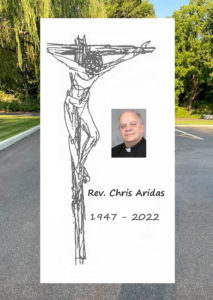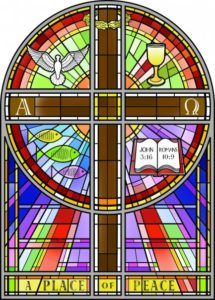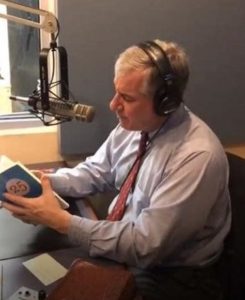 We thank God for our friend and brother in evangelizing, Fr. Chris Aridas (Nov. 12, 1947 – Feb. 2, 2022). He was truly “led by the Spirit and driven by God’s Word”. We all met in 1986, when John began working with Fr. Chris, and others, on a diocesan level, to offer spiritual renewal to Catholic believers. The result was a dynamic approach that combined Catholic theology, adult catechesis and “the best of the Charismatic Renewal.”
We thank God for our friend and brother in evangelizing, Fr. Chris Aridas (Nov. 12, 1947 – Feb. 2, 2022). He was truly “led by the Spirit and driven by God’s Word”. We all met in 1986, when John began working with Fr. Chris, and others, on a diocesan level, to offer spiritual renewal to Catholic believers. The result was a dynamic approach that combined Catholic theology, adult catechesis and “the best of the Charismatic Renewal.”
Over the next fourteen years, secondary strategies emerged as we were “led by the Spirit and driven by God’s word.”
- Reimagining ways to train leaders of existing groups in how to evangelize, through more deliberate invitations and faith sharing. Leaders were from parish-based groups like Little Rock Scripture Studies (LRSS), RENEW International groups, and charismatic prayer groups.
- Sharpening the focus of large group parish events, most notably healing masses and Ash Wednesday services that led into Lenten missions; as well as week-long, summer Bible Institutes; and dozens of ongoing diocesan workshops.
- Ecumenical efforts to evangelize. In 1990, we assisted 70 parishes in offering a Catholic follow up to a regional Billy Graham Crusade. This included basic training in evangelization for 500-600 people and an influx of 600 participants into LRSS groups as follow-up.
- Intentional, free-standing training in person-to-person evangelizing. This program was first presented to 10,000 people as “Bringing Christ to My Everyday World” at the North American Congress on the Holy Spirit and World Evangelism. Additional versions of this training were condensed into a one-day workshop on Catholic evangelization called, “Simple Ways Catholics Can Share Faith”. It was offered in dozens of parishes.
We share these strategies to inspire a life-long passion for “no-holes-barred” innovations that stretch us to respond to people’s spiritual needs. We encourage you and to find ways to bring the Gospel to life, using both diocesan and parish approaches.
Here are excerpts from some of Fr. Chris’ writings and emails that speak of his burning desire to be led by the Spirit, to evangelize, and to enkindle faith.
[From a 2015 parish letter] Since the late 16th and early 17th centuries, the Catholic strategy for building up the faithful has been childhood catechesis and sacramental initiation. Children’s classes and the Catholic school system were cutting-edge responses to the crisis of the Protestant Reformation. It was an extraordinary vision that worked for an extended period of time… Evidence today, however, suggests that what worked in the 17th century does not work in the 21st, now that most of our young adults become “unaffiliated” Catholics, who no longer find their way back to the Church, when they are ready to marry and have children. In fact, the number of marriages celebrated in the Church has decreased by 60% in the past 50 years, although the number of “Catholics” has increased by almost 17 million. Other sacraments have suffered as well.
So, now our goal for all of parish life is clear: proclaim the “Good News,” centered on the raising of Jesus from the dead. Tell everyone that God’s plan for new life includes all; invites all; and embraces all who are willing to follow the risen Lord as disciples [of all ages].
[from 2020 emails] Right now, my heart is being moved to intercessory prayer. It’s a natural spot since I have been taking my 96-year-old mother to doctor visits, the hospital and/or to a rehab unit…
Then later, I have pretty much been living at her condo, assisted by a full-time aide. Still, I am blessed to be with her during this time…
Since my mother’s death in May, I have been praying that I will be able to follow what the Lord wants me to do next, as I continue my service to Him. The Lord and I are in the process of discussing opportunities and timelines. Thus far, it appears that the Lord’s timeline is the one we’re going to work with for the time being. We’ll see how that pans out.
[Spring 2021] I have retired. But in the mornings, I still offer Daily Video Reflections for the people of Assumption Parish while we are all apart during the pandemic… And my heart is being increasingly moved to intercessory prayer. I spend most afternoons doing so. Now I have lots of time to follow the Spirit’s lead in praying for our church; which is in need of wisdom, courage, and new avenues for responding to the pastoral needs of its members. So, keep the prayers coming. I’m always willing to accept prayers at any time from anyone!
You may listen to A Sampling of Daily Reflections by Fr. Chris Aridas .


